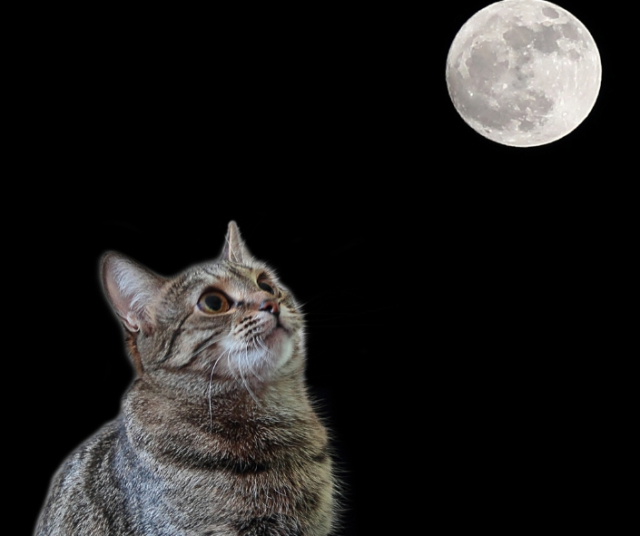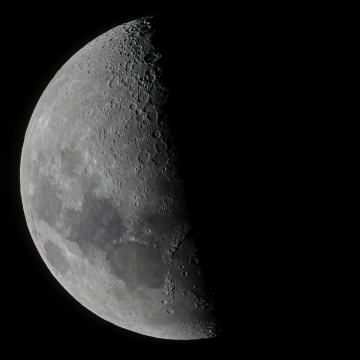The relationship between the Moon and pets has been the subject of fascination and debate for centuries. Many pet owners claim that the moon phases affect the behavior and health of their animals, while others dismiss these beliefs as simple superstitions.
Popular Beliefs: Myths or Reality?
Throughout history, the relationship between lunar phases and pet behavior has been a recurring topic of interest and speculation. The Moon , with its monthly cycle of visual changes, has inspired numerous beliefs and myths about how it influences the behavior and health of companion animals, particularly dogs and cats. It is essential to examine these long-held beliefs and elucidate the reality behind these popular perceptions.
1. Behavior
Myth : One of the most widespread myths suggests that animals, especially dogs and cats , experience noticeable changes in their behavior in relation to the lunar phases. It is claimed that during the Full Moon , animals become more agitated, restless or even prone to unusual behavior, while during the New Moon, they become calmer and more peaceful.
Fact : While it is true that some pet owners claim to have observed changes in their animals' behavior during different lunar phases, these claims lack a solid scientific basis to support them. It is important to consider that changes in pet behavior can be attributed to a variety of factors, such as environment, health, daily routine or the quality of interaction with their owners. The perception that the Moon plays a direct and determining role in its behavior may be due more to the human predisposition to look for patterns and meanings in natural phenomena than to a verifiable reality.
2. Health and Growth
Myth : Another common belief relates the lunar phases to the health and growth of pets. It has been claimed that scheduling veterinary surgeries, such as spaying, during specific phases of the Moon can speed recovery and promote more efficient healing. Additionally, it is argued that pet wounds heal better during certain lunar phases.
Fact : Scheduling veterinary surgeries based on lunar phases lacks solid scientific support. A pet's health and recovery after surgery largely depends on proper veterinary care, hygiene, post-operative follow-up, and the overall health of the animal. Attributing these processes exclusively to the influence of the Moon is to oversimplify a more complex and multifaceted reality.
3. Night Howls
Myth : Some people associate dogs' nighttime howling with the Full Moon, suggesting that the Moon's brightness has a direct effect on their vocal behavior. It is believed that dogs are more likely to howl on these nights.
Fact : Dog howling at night is a behavior that can be related to various causes. While some dogs may be more vocal during the Full Moon, this does not necessarily mean that the Moon is the main cause of this behavior. Factors such as loneliness, need for attention, health problems, environmental stimuli, genetics and breed characteristics also influence the vocal behavior of dogs. Associating night howling only with the Full Moon oversimplifies a more complex and multifaceted issue.
The Science Behind the Moon and Pets
While it is important to recognize popular beliefs, it is also essential to understand the science behind the Moon and its influence on pets. The main connection between the Moon and animals is the nocturnal illumination it provides during the Full Moon. This can affect pets' vision and their perception of their surroundings, but it does not necessarily change their behavior significantly.
Light changes can be noticeable in nocturnal animals like cats, which may be more active at night when the Moon is full and shining brightly. However, these changes are more a matter of adaptation to the luminosity than a mystical influence of the Moon on its behavior.
Tips for Caring for Your Pet in All Moon Phases
Despite the lack of solid scientific evidence on the Moon's direct influence on pets, there are ways you can care for your furry companion through all lunar phases:
Regular Veterinary Care
Your pet's health depends largely on regular visits to the veterinarian. Keep his vaccinations, health exams, and preventive treatments up to date to ensure he is in optimal condition during all lunar phases.
Appropriate Diet and Exercise
Provide your pet with a balanced diet appropriate to its age and activity level. Make sure he gets enough exercise to stay fit and healthy.
Behavior and Training
If you notice changes in your pet's behavior during certain lunar phases, pay attention to other factors that may be contributing, such as stress or changes in daily routine. If necessary, consider consulting a professional pet trainer.
Safety at Night
If you have a pet that goes outside, be sure to provide a safe environment at night, especially during the Full Moon. Keep your pets indoors or in a fenced area to prevent them from getting lost or facing danger.
Consistent Routine
Pets tend to feel more comfortable and secure with an established routine. Maintain regular feeding, walking and playing times to reduce stress and anxiety, regardless of the moon phase.
Instead of basing your pet care on moon phases, it's more important to pay attention to your furry companion's basic needs, such as veterinary care, proper diet, and exercise. Maintain a consistent routine and seek professional help if you notice significant changes in your pet's behavior. The key to a happy, healthy pet lies in your consistent commitment and responsible care, regardless of what moon phases may shine in the sky.






